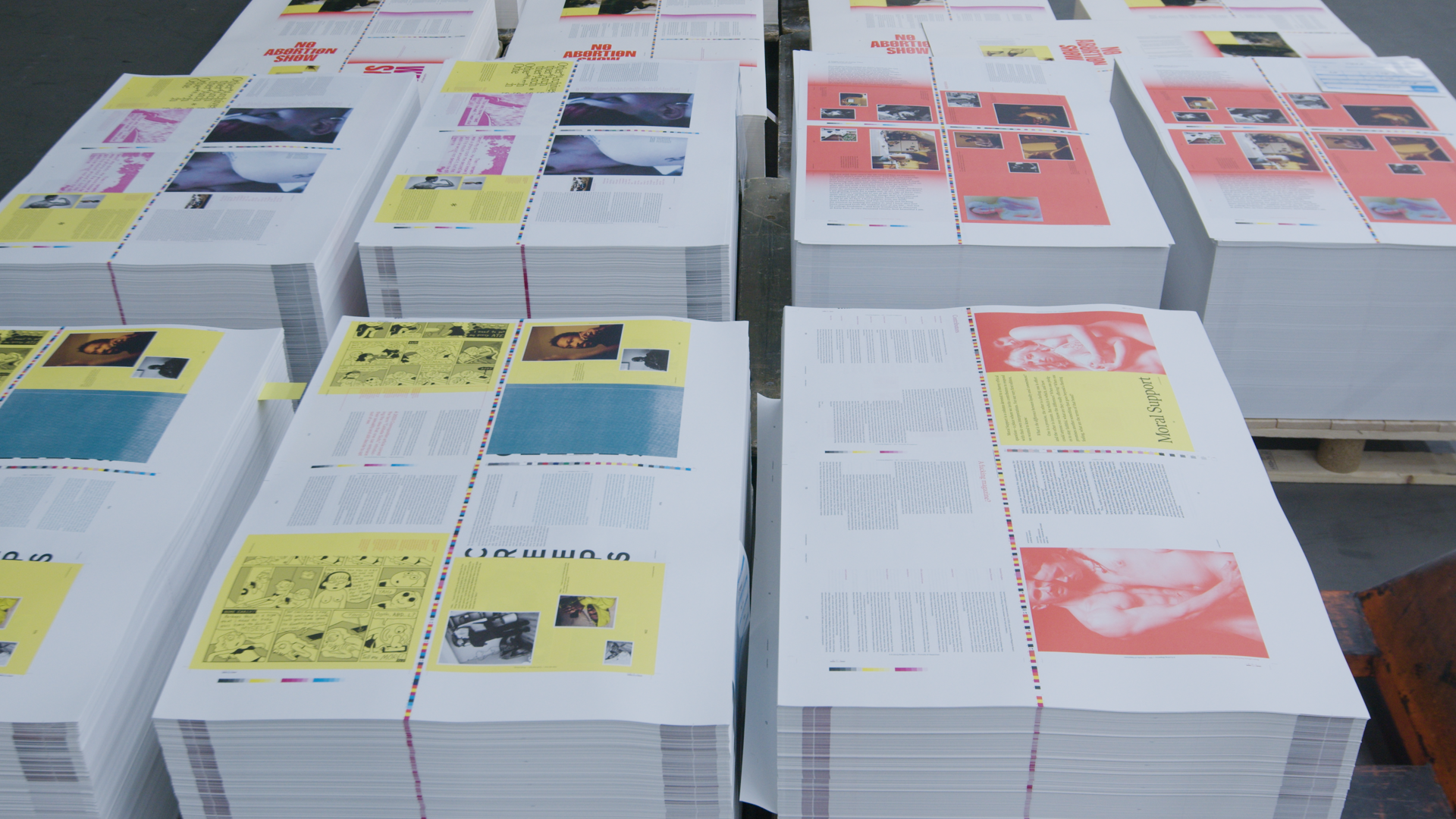A letter from your editors

The first issue of A Fucking Magazine is now available for purchase online, at newsstands and bookstores, and our website. Below, the editors introduce Feeld's new editorial project.
A fucking magazine? Can you believe it? Back when these pages were just ideas, we would often pause to consider the absurdity of it all. Starting a print publication (anytime, let alone at this time) feels like, if not a provocation, then a true dare. We wanted to clench our fists and pound the table and declare loudly that, yes, we were going to make a fucking magazine. There’s an element of desire, too, to editorial work itself that runs parallel to the experience of desire we wanted this magazine to be about. To feel the air push past the pages as they flip, the pure rush of sensation that exists for its own sake: that’s why we wanted you to have a fucking magazine.
AFM is a project by Feeld, the dating app for the curious. More than half of the contributors in this issue are on Feeld, and some of the work itself, as well as the sources and subjects, was found through calls for submissions via the Feeld app. Dedicated to and created in collaboration with Feeld’s expansive community of people—who understand that finding what they are looking for is often just the beginning—it’s important to note that we take a flexible view of what it means to be part of that community. There are lots of good reasons to look for connections on Feeld, or through other digital means, and there are as many reasons why someone might have other preferences or a need for privacy. With AFM, we’re trying to create a material expression of what curiosity brings to life. Relationships and romance, desire and dating, commitment and separation, openness and closeness: these are ineffable experiences that can defy description, but they are also practical, political, personal, and philosophical, which means they lend themselves well to trying to find the words.
The theme of the first issue is Pursuits of Happiness, and it’s intended to be interpreted as widely as possible. We’ve brought together stories and ideas that explore all facets of what it means to reach for joy, pleasure, satisfaction, grace, desire—or whatever other euphemism comes to mind when one thinks of what it means to be in pursuit or to be happy or both—as well as the experience of feeling these concepts most acutely in their absence. Loosely inspired by Stanley Cavell’s book of the same name, his examination of Old Hollywood remarriage comedies has always seemed, to us, like the ideal text for readers who love a good contradiction. Cavell wrote of the “peculiar strength” of philosophy to receive “inspiration for taking thought from the very conditions that oppose thought.” “Our lives were, fundamentally, the movies,” writes Justin Smith-Ruiu in his essay on Cavell, “Regimes of Happiness,” tracing their role in shaping our desires, aspirations, and visions of romance for decades to come. He shows how they shaped even the very way we speak, echoing Cavell’s argument that these films were themselves investigations of “ideas of conversation, and investigations of what it is to have an interest in your own experience.”
Perhaps it was inevitable that a print magazine created from a dating app would take such an interest in screens. Flipping pages, scrolling through profiles, the transmission of moving images—all have more in common than not. That’s probably why throughout this first issue you’ll see and read a lot about film, television, and other celluloid stories: they are as much about what (or who) we’re looking for as they are reflections on where we locate ourselves. Merritt Tierce’s timeline essay, “No Abortion Show,” charts the ups and downs of attempting to make a television show in contemporary Hollywood about abortion, both about the people who provide this healthcare and those who continue to fight for it as an unapologetic right. Meanwhile, “Other Archives” is a photo essay of stills from the extensive collection of filmmaking managed by Otherness Archive, plus an introduction by Ellis Jackson Kroese, about the work of documenting and preserving transmasculine artistry and representation in all manner of cinema. The legendary filmmaker James Ivory turns his lens on his own childhood memories of seasons spent in Palm Springs, and in Michael Costain’s interview with the illustriously provocative filmmaker Bruce LaBruce, their career-spanning conversation starts with nothing less than the prospect of revolution possible in all versions of past, present, and future.
Relatedly: AFM loves a talking stage. There are conversations throughout, like Allison P. Davis and Susanna Moore in “The Curse,” a discussion between two singular writers with a wealth of work about the way desire can exist inside a sentence. You’ll also find a chorus of voices in Fan Wu’s essay, “A Thousand Ways of Going Both Ways,” his insightful study of masculinity and bisexuality that features Feeld Members in their own words. In “Take Me Out,” we take you inside the homes and rituals of a small group of people preparing for a date, showing and telling some quiet moments of solitude that come before togetherness. And for our version of a centrefold, Jard Lerebours’ interview with the writer-artist-musician-DJ-and-so-much-more Juliana Huxtable was our dream come true for a cover story. Their talk is all about the pursuits that inspire our theme: happiness, yes, but also freedom in all forms—artistic, sexual, romantic, existential.
And speaking of dreams, we always knew we wanted AFM to feature the work of artists, novelists, poets, as well as all kinds of fantasies. Throughout you’ll see illustrations, designs, and photographs that bring a new depth to imagination. In short stories like “Celia, Celia” you’ll be challenged to consider the ravages of hunger, and in poems like those by Rachel Long and Delilah McCrea the vision of Eden strikes the heart with the full force of desire. If, as acclaimed novelist and essayist Daphne Merkin writes in her incisive essay on erotic unhappiness, “sex, by its very nature, is not always what one dreams of, and more importantly, comes to an end,” followed by the aftermath of “dirty sheets, or getting ready, or simply oneself,” even this form of longing holds its own seductions.
There’s more. There’s so much more! The exclamation of our intentions is designed to offer what we knew our readers would want, and also, we hope, to maybe even suggest something new to want.
Finally, a note before we leave you to the following pages: over a decade ago, the beloved author Ursula K. Le Guin wrote an essay arguing against the word “fucking” itself. She was dismayed by a culture of books and movies that didn’t “seem to have any adjective to describe fucking except fucking,” even when people are “fucking fucking.” She makes a great point. Profanity is a funny thing: overused and frail, it’s sensitive to speak and tough to hear, which is probably why it’s so fun to say. The “F” in AFM could also stand for Feeld, a little loophole built into the title in case we felt ourselves getting too carried away, but that fucking is really there to invite you towards a polymorphous definition all your own. We may have been the ones who made this fucking thing, but it’s your fucking thing now.
Love,
Your editors


